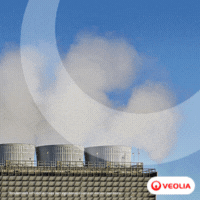IREPAS: Decent Performance in Global Long Market, But Concerns Rising
07/11/2014 - Global demand has remained at reasonable levels during the course of the last 30 days, IREPAS said in its Short Range Outlook for July 2014.
The market has been performing well in the Americas and showing better numbers in Europe. Elsewhere, market dynamics have continued to be strong in MENA countries, Africa and Asia.
However, excess supply in general is putting a lot of pressure on pricing and margins. Steel export prices and volumes from China as a result of the slowdown in the country due to tightening credit continue to restrict both operations and outlook for many world steelmakers and cause steel buyers to remain careful. The rise in protectionism around the world, which is squeezing international trade, is increasingly a source of worry. Furthermore, the political unrest in Ukraine, Iraq and Syria has slowed down demand in these areas and has put pressure on producers, especially on Turkish mills. Moreover, the gap between the costs of scrap and iron ore has severely damaged the competitiveness of scrap-based steel producers. Competition is now much stronger in long steel products market, which is a sign that the supply/demand equation is becoming more and more unbalanced.
According to Worldsteel data, the daily rate of global crude steel production increased by 0.2 percent in May compared to April to an annual rate of 1.662 billion metric tons. The global steel industry operated at 78.5 percent of capacity in May. Year-to-date global crude steel production in May increased by 2.4 percent year on year to an annualized rate of 1.642 billion metric tons. China’s year-to-date crude steel production accounted for 49.9 percent of global output. Global apparent consumption of purchased scrap in May was 113 percent of the rate for the record year of 2013. Global apparent consumption of purchased scrap exceeded one million metric tons per day during each of the first five months this year. Based on the projection of Worldsteel data for the first five months, as compared to 2013, in 2014 the world will:
The long steel products market is generally stable, provided more unforeseen developments do not arise. Seasonal circumstances can result in an even more complicated scenario. That said, the increase in demand in the US even under the impact of the rising volume of imports is a major positive. A post-Ramadan boost can be expected as buying in the markets concerned has been restricted in recent weeks.
However, excess supply in general is putting a lot of pressure on pricing and margins. Steel export prices and volumes from China as a result of the slowdown in the country due to tightening credit continue to restrict both operations and outlook for many world steelmakers and cause steel buyers to remain careful. The rise in protectionism around the world, which is squeezing international trade, is increasingly a source of worry. Furthermore, the political unrest in Ukraine, Iraq and Syria has slowed down demand in these areas and has put pressure on producers, especially on Turkish mills. Moreover, the gap between the costs of scrap and iron ore has severely damaged the competitiveness of scrap-based steel producers. Competition is now much stronger in long steel products market, which is a sign that the supply/demand equation is becoming more and more unbalanced.
According to Worldsteel data, the daily rate of global crude steel production increased by 0.2 percent in May compared to April to an annual rate of 1.662 billion metric tons. The global steel industry operated at 78.5 percent of capacity in May. Year-to-date global crude steel production in May increased by 2.4 percent year on year to an annualized rate of 1.642 billion metric tons. China’s year-to-date crude steel production accounted for 49.9 percent of global output. Global apparent consumption of purchased scrap in May was 113 percent of the rate for the record year of 2013. Global apparent consumption of purchased scrap exceeded one million metric tons per day during each of the first five months this year. Based on the projection of Worldsteel data for the first five months, as compared to 2013, in 2014 the world will:
- produce 62 million metric tons more crude steel.
- produce 34 million metric tons more iron.
- apparently consume 28 million metric tons more purchased scrap.
The long steel products market is generally stable, provided more unforeseen developments do not arise. Seasonal circumstances can result in an even more complicated scenario. That said, the increase in demand in the US even under the impact of the rising volume of imports is a major positive. A post-Ramadan boost can be expected as buying in the markets concerned has been restricted in recent weeks.



-(1)-Reinhausen-(1).jpg?lang=en-US&ext=.jpg)






